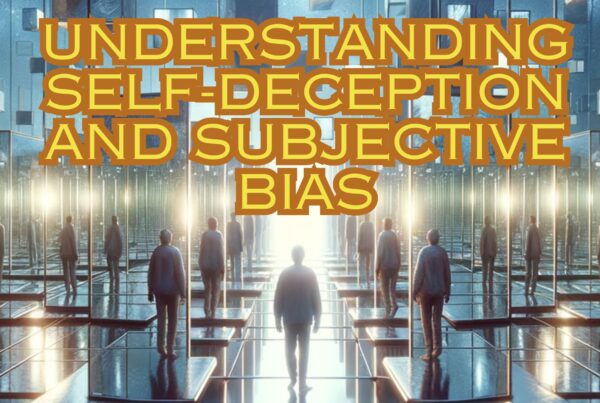The Reticular Activating System and Its Role in Overcoming Anxiety: Unlocking the Power of Your Mind
What is the Reticular Activating System?
Have you ever wondered how your mind filters through the overwhelming amount of information it receives every second? How do you manage to focus on important details while disregarding the irrelevant noise around you? The answer lies within a fascinating part of your brain called the reticular activating system (RAS). In this article, we’ll explore the inner workings of the RAS and discover how it can help you overcome anxiety and achieve a calmer state of mind.
The Reticular Activating System (RAS) acts as a gatekeeper in your brain, controlling what information reaches your conscious awareness and what gets filtered out. Located in the core of your brainstem, the RAS acts as a vigilant sentinel, constantly scanning the environment for relevant signals that require your attention. It’s like having a personal assistant who screens the incoming stimuli and decides which ones are worthy of your conscious focus.
The Reticular Activating System and Anxiety
Anxiety can be a challenging and distressing experience. It often feels like your mind is being bombarded with a never-ending stream of worries and uncomfortable thoughts, making it difficult to find peace and relaxation. Understanding how the RAS operates can provide valuable insights into managing anxiety more effectively.
The RAS plays a crucial role in the way we perceive and respond to the world around us. When anxiety takes hold, the RAS can become hypersensitive, amplifying the perception of potential threats and heightening feelings of unease. It’s as if the gatekeeper becomes overly vigilant, constantly scanning for danger and flooding your conscious awareness with negative stimuli.
Reprogramming the Reticular Activating System for Calmness
Fortunately, with the right techniques, you can reprogram your RAS to work in your favor, promoting a sense of calm and well-being. One powerful method for achieving this is through the use of hypnosis and mindfulness.
Hypnosis, a state of deep relaxation and focused attention, allows direct access to the subconscious mind where the RAS resides. During hypnosis, the hypnotherapist can guide you to reframe negative thoughts, replace anxious patterns with positive ones, and create a heightened sense of relaxation. This reprogramming of the RAS helps shift your focus away from anxiety-inducing stimuli and redirects it toward more positive and calming experiences.
Research has shown that hypnosis can be an effective tool for reducing anxiety and improving overall mental well-being (Bryant et al., 2019). By leveraging the power of suggestion and the plasticity of the brain, hypnosis can bring about significant changes in your perception of anxiety, making it more manageable and less overwhelming.
Mindfulness Techniques and the Reticular Activating System
In addition to hypnosis, mindfulness techniques can also influence the functioning of the RAS. Mindfulness involves bringing your attention to the present moment, cultivating a non-judgmental awareness of your thoughts, emotions, and bodily sensations. By practicing mindfulness, you can learn to observe anxious thoughts without becoming entangled in them. This allows the RAS to recognize that these thoughts are not immediate threats, reducing its hyperactivity and promoting a sense of inner calm.
Research has shown that mindfulness-based interventions have a positive impact on anxiety reduction (Hofmann et al., 2010). By incorporating mindfulness into your daily routine, you can train your RAS to filter out unnecessary worries and focus on the present moment, leading to a more peaceful state of mind.
Embracing the Power of Your Reticular Activating System
The Reticular Activating System is a remarkable aspect of your brain, with the potential to transform the way you experience anxiety. By understanding how the RAS works and utilizing techniques such as hypnosis and mindfulness, you can take an active role in reprogramming your mind for calmness.
Imagine your RAS as a loyal assistant, diligently filtering through the noise and distractions, allowing you to focus on what truly matters. By nurturing a positive and relaxed state of mind, you can open the door to a life free from the shackles of anxiety, and embrace a future filled with tranquility and well-being.
Remember, your mind has incredible untapped potential, and the Reticular Activating System can be your ally on the path to inner peace.
References for Reticular Activating System
– Bryant, R. A., Moulds, M. L., & Guthrie, R. M. (2019). Treating acute stress disorder: an evaluation of cognitive behavior therapy and hypnotherapy. Psychological medicine, 49(5), 832-838.
– Hofmann, S. G., Sawyer, A. T., Witt, A. A., & Oh, D. (2010). The effect of mindfulness-based therapy on anxiety and depression: A meta-analytic review. Journal of consulting and clinical psychology, 78(2), 169-183.
Release Hypnosis Melbourne Hypnotherapy
Since 2016, Lawrence Akers has been working under the name Release Hypnosis offering Hypnotherapy and ACT based work to the people of Melbourne or an online service. Based on St Kilda Rd, Release Hypnosis is an easy and convenient location to get to and accessible by the ANZAC station train and tram stop. Release Hypnosis can help with a wide range of presenting issues, and I offer a free 30 minute no obligation discovery call for those who are unsure if hypnotherapy is the right way forward for them.
Book Your FREE 30 Minute Consultation With Release Hypnosis NOW!
You may also like to read:
Discovering Purpose and Values: A Path to Mental Well-being
Can’t Visualise in Hypnosis? Here’s What You Can Do Instead.
Dealing with Financial Stress and Crisis: Finding Peace Amid Turbulence
What Is The Success Rate of Hypnosis?
Release Hypnosis Melbourne Hypnotherapy is accessible for people in: Abbotsford, Armadale, Albert Park, Balwyn, Bentleigh, Black Rock, Box Hill, Brighton, Brunswick, Bulleen, Bundoora, Camberwell, Canterbury, Carnegie, Caulfield, Chadstone, Cheltenham, Clayton, Coburg, Collingwood, Deer Park, Doncaster, Elsternwick, Eltham, Elwood, Epping, Essendon, Fairfield, Fitzroy, Footscray, Glen Iris, Glen Waverley, Glenhuntly, Greensborough, Hampton, Hawthorn, Heidelberg, Highet, Ivanhoe, Kew, Kooyong, Lalor, Laverton, Lower, Plenty, Macleod, Malvern, Middle Park, Moonee Ponds, Melbourne, Moorabbin, Mount Waverley, Murrumbeena, Northcote, Oakleigh, Ormond, Parkville, Pascoe Vale, Port Melbourne, Prahran, Preston, Richmond, Rosana, Sandringham, South Yarra, South Melbourne, Spotswood, St Albans, St Kilda, Surrey Hills, Templestowe, Thornbury, Toorak, Tullamarine, Williamstown, Yarraville, North Melbourne, Windsor, East Melbourne, Melbourne, Melbourne CBD, Melbourne 3004








